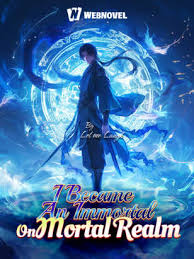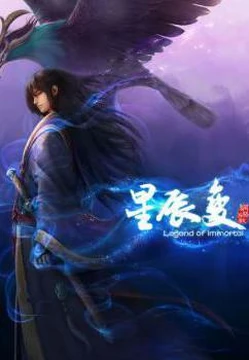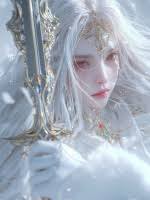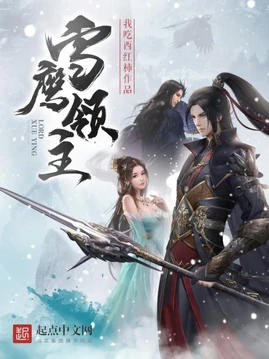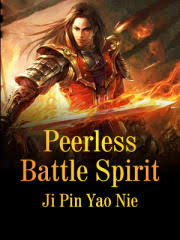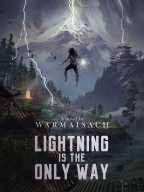The Story in 3 Sentences
Reborn as the thirteenth grandson of Duke Fang Meng in the Qi Dynasty, Fang Wang awakens with the cheat of a Heavenly Palace in his mind, granting him the power to master any cultivation art to perfection instantly, setting him on a path to defy fate itself .
His journey shifts from leveraging his noble birth to gather martial arts into a desperate, continent-spanning quest for the one celestial art that grants true immortality within the mortal realm, all while navigating treacherous sects and hidden demonic threats .
The direction culminates in a cosmic confrontation where Fang Wang, having ascended beyond mortal limits, challenges the very Heavenly Dao, uncovering a heartbreaking truth: a celestial being sacrificed a hundred thousand lifetimes just to ensure his survival, completing his arc from a desperate reincarnate to an immortal who reshapes destiny .
Why It Stands Out
1. The Cheat That Isn’t Lazy
Forget mindless power fantasies. Fang Wang’s Heavenly Palace demands perfection, forcing him into seclusion for years to master each technique flawlessly before emerging. This isn’t instant gratification; it’s strategic, patient dominance, making every victory feel earned through unseen, grueling effort within his mental sanctum. His power is absolute, but its application is deliberate, creating tension even when he’s overwhelmingly strong.
2. Dynasty Meets Dao
The novel brilliantly merges the intricate politics and legacy of a founding Duke’s noble house with the boundless, often amoral, pursuit of immortal cultivation. Fang Wang isn’t just fighting cultivators; he’s maneuvering to uplift his entire mortal family lineage into a cultivation clan, turning ancestral duty into a core driver of his immortal quest, adding layers of responsibility rarely seen in the genre .
3. The Bittersweet Immortal
While many seek immortality for power or escape, Fang Wang’s journey is shadowed by a poignant inability to change his family’s preordained fate, lamenting, “Alas, to think that I, an Immortal Venerable, have returned to my youth, yet am unable to alter my family’s fate…” . This underlying melancholy, resolved only by the ultimate, sacrificial revelation at the end, gives his triumph a uniquely resonant, emotionally complex weight that transcends typical cultivation victories.
Characters That Leave a Mark
There’s Fang Meng – the formidable founding Duke of Qi, a war hero whose earthly power and deep, trembling hope for his family’s immortal future provide the initial anchor and emotional stakes for Fang Wang’s journey, his excitement palpable when glimpsing his grandson’s potential .
You’ll meet Lu Yuanjun, who rose to fame as the “White Garment Astonishing Swan” of the Great Abyss Gate, a prodigy whose secret descent into demonic arts for a tragic, personal goal makes him a compelling, morally grey rival whose judgment even other disciples wouldn’t dare question .
And Fang Yin? They’re the one who, as the youngest son of Duke Fang Meng and Fang Wang’s direct father, represents the quiet, perhaps less ambitious, link in the generational chain, embodying the mortal life Fang Wang is both bound to and striving to transcend .
The Flaws Fans Debate
The English translation suffers from inconsistent naming, making it hard to track characters and sects reliably.
Some readers feel the world-building, especially the rules and hierarchies of the broader cultivation world beyond the Qi Dynasty, lacks sufficient detail.
While Fang Wang tries to keep a low profile, his cheat ability often makes it impossible for him to remain truly hidden, reducing the tension of his “hidden card” strategy.
Must-Experience Arcs
Ch. 1–50: The Duke’s Prodigy Awakens – Fang Wang, reborn with his Heavenly Palace, leverages his status as the Duke’s grandson to begin collecting martial arts, mastering them in secret while navigating early family dynamics and the first hints of his unique burden and potential, setting the foundation for his dual identity.
Ch. 200–300: The Peacock Flies, Sects Collide – Venturing far from home, Fang Wang encounters major cultivation sects like the Protecting Heaven Sect, faces powerful rivals, and his reputation as a hidden powerhouse begins to spread, forcing him into larger conflicts that test his perfected techniques against the continent’s established powers.
Ch. 400–485: Challenging the Heavenly Dao – In the final, epic arc, Fang Wang confronts the fundamental laws of the universe, the Heavenly Dao itself, culminating in a battle where the shocking, sacrificial truth behind his survival across lifetimes is revealed by the Heaven Emperor, transforming his quest for personal immortality into a cosmic reckoning.
Killer Quotes
“Alas, to think that I, an Immortal Venerable, have returned to my youth, yet am unable to alter my family’s fate… Is Heaven playing tricks on me?”
“I’ll defeat you with my medicinal pills. Inheritance? The supreme inheritance is right in my head!”
Cultural Impact
It’s a solid performer on WebNovel, amassing over 3.8 million views, indicating a strong, dedicated readership within the platform’s xianxia community .
Fans are deeply invested in the emotional payoff, particularly the theory and eventual confirmation of the hundred-thousand-lifetime sacrifice, which sparked significant discussion and poignant reactions in comment sections .
The novel is frequently recommended for its unique take on the “golden finger” trope, praised for making the overpowered protagonist’s journey feel strategic and emotionally grounded rather than purely gratuitous.
Final Verdict
Start Here If You Want:
A protagonist whose cheat power demands perfection, making his dominance feel earned and strategic.
A rich blend of noble dynasty politics with high-stakes immortal cultivation, where family legacy is as important as personal power.
An emotionally resonant xianxia climax that trades pure power escalation for a bittersweet, universe-altering revelation about sacrifice and fate.
Study If You Love:
Narratives that explore the psychological weight of reincarnation and the limits of even god-like power to change predestined tragedies.
The subversion of the “hidden card” trope, examining how true power inevitably forces a character into the spotlight.
The integration of familial duty and clan-building as core, driving motivations within the traditionally individualistic cultivation genre.
Avoid If You Prefer:
Flawless, polished translations with perfect consistency in names and terminology.
Extensively detailed world-building that explains every facet of the cultivation system and its political structures upfront.
Stories where the protagonist’s hidden strength remains a genuine, long-term secret, as the MC’s power often necessitates early reveals.
